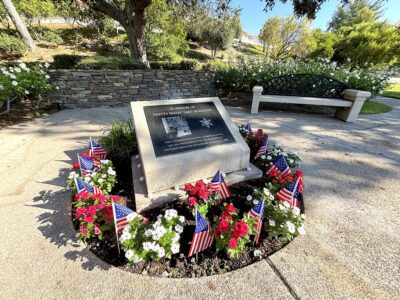
Across thousands of years, Jainism has stood apart for its gentle values. This ancient Indian faith teaches peace, restraint, and a unique respect for all living beings. In today’s plural world, where people of many faiths often live side by side, values like these shape paths to harmony.
Jain ethics, rooted in nonviolence and open dialogue, invite deeper trust and honest exchange between religious communities. Dr. Jasvant Modi, a noted physician and global advocate for Jain teachings, provides a closer look at how Jain teachings and values, when shared across communities, can help build bridges in a divided age.
Jainism’s Philosophy of Nonviolence and Dialogue
Jainism centers itself on ahimsa, which means nonviolence in action, word, and thought. This principle guides every choice, big or small. For Jains, causing harm, even in the smallest dose, weakens the soul. They teach that human progress depends on restraint and reverence for life, whether toward people, animals, or nature.
Another core Jain idea, anekantavada, or “many-sidedness,” fosters respect for difference. No single point of view covers all truth. Instead, truth rests in layers and angles. Each person may see a different slice of reality. This belief does not weaken faith; it strengthens humility, offering space for others at the table of discussion.
Jain scriptures recount many moments of peaceful dialogue. Over centuries, Jain monks and laypersons have spoken with rulers, spiritual leaders, and scholars from Hindu, Buddhist, Islamic, and Christian backgrounds.
In these moments, the guiding light was never conquest but listening and learning. Stories tell of Jain monks debating in royal courts, not for victory, but to uncover genuine understanding, always upholding courtesy, never provoking insult.
Jain principles call for deep respect, not just for shared values but also for difference itself. Ahimsa extends beyond simple non-harm and refers to active care, even in disagreement. When gentle speech becomes a habit, dialogue transforms from argument to mutual search for meaning.
“Anekantavada counters the urge to judge or dismiss,” says Dr. Jasvant Modi. “Jains see every faith as holding a portion of a vast, complex truth. Even strong differences are met with patience and interest. This belief opens doors for honest dialogue where each voice brings insight.”
Satya, or truthfulness, adds another layer. Jains hold truth as sacred but urge humility in stating one’s view. Even when certain, one listens and considers the pain or perspective of the other side. Through this blend of conviction and care, trust grows.
Throughout history, Jains have worked alongside neighbors from every religious tradition. In ancient and medieval India, Jain monks lived near Hindu and Buddhist communities, often building temples in the same towns. They traded ideas on ethics and ritual, sometimes even sharing holy sites.
Jain thinkers engaged Buddhist philosophers in open, respectful debate that shaped both traditions. During periods of Muslim rule on the Indian subcontinent, Jain traders built relationships with Muslim leaders. They often served as trusted mediators or advisors. Some Jains helped protect Hindu and Buddhist sites during times of upheaval, risking their safety for broader peace.
Notes Dr. Modi, “Jain communities contributed to shared festivals and supported interfaith charity long before the idea of organized interfaith dialogue existed.”
The Jain commitment to peaceful living stood out during conflicts that shook India. While communities around them faced tension, Jains often acted as a calming force. Their towns became known for order and fairness, attracting respect from all sides. These patterns continue in places where Jains have migrated, from East Africa to North America.
Jain Contributions to Interfaith Efforts Today
Modern Jain communities continue to shape interfaith cooperation. Jain leaders speak at world conferences on religion and peace. They join United Nations panels and local councils alike. Their focus remains on nonviolence, justice, and respect for all traditions.
Jain thinkers often advise that dialogue must reach past theology into daily life. Food, business, education, and health become grounds for real engagement. Through practical action, trust grows stronger than talk alone.
Many Jains also help others care for the earth, seeing the health of the planet as a shared cause. By supporting vegetarianism, animal welfare, and nonviolent action, they reach beyond boundaries of faith. Jain groups support schools, hospitals, and disaster relief projects that serve all, regardless of creed.
Jain women and youth have stepped forward as global bridge-builders. They lead discussions on nonviolence at home and in public settings. Their clear voice and steady presence bring new life to old ways of wisdom.
Organizations led or inspired by Jains partner with diverse faiths through dialogue programs, conferences, and shared volunteer work. Groups like the Jain Academic Foundation of North America sponsor seminars, open houses, and lecture series, inviting the public to learn about Jain principles and to connect them to larger questions of peace.
“Jain-run schools in India and abroad often include world religions in their curriculum. This effort shows respect from a young age, so that children see difference as something to be explored rather than feared,” says Dr. Modi.
Jain temples often host interfaith symposia, with leaders from many traditions speaking side by side. Several Jain organizations work with international peace groups and speak at major events, such as the Parliament of the World’s Religions or regional interfaith summits. They promote dialogue as well as joint service such as food drives or health fairs, which show faith in action.
Jain experience offers many lessons for communities looking to deepen interfaith trust. The commitment to nonviolence can set a tone of peace even during tough dialogue. This stance encourages restraint in both word and action, so discussions can remain honest but safe.
The teaching of anekantavada guards against dogmatism. It teaches speakers to pause and seek the other side’s meaning, lowering the risk of misunderstanding. Communities that practice this mindset become more welcoming and resilient during hard times.
Jainism shows that building trust takes more than talk. Small daily acts, like sharing a meal or serving others, can anchor goodwill. Forgiveness and humility, so central to Jain life, keep old quarrels from poisoning new friendships.
Dialogue can move beyond the level of leaders. Jain tradition values each individual’s potential to uphold peace. This inspires lay persons like shopkeepers, teachers, and even children to act as bridge-builders in daily life.
Jains encourage ongoing education, believing that learning never ends. When people of different faiths study together, read together, and solve shared problems, their bonds grow thicker than simple tolerance. True partnership blooms.
Jainism is a quiet but steady source of wisdom on peaceful coexistence. Its teachings on nonviolence, respect, and dialogue have shaped communities that thrive alongside people of every faith. By choosing care over conflict and curiosity over judgment, Jains have built trust that crosses boundaries both old and new.
People everywhere can take inspiration from Jain approaches to dialogue and peaceful living, using them to seed respect and hope wherever difference is found. True peace comes not from sameness, but from learning together and honoring each voice. Through such bridges, a more just and compassionate world comes within reach.
DISCLAIMER: No part of the article was written by The Signal editorial staff.






